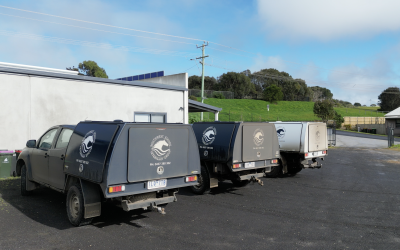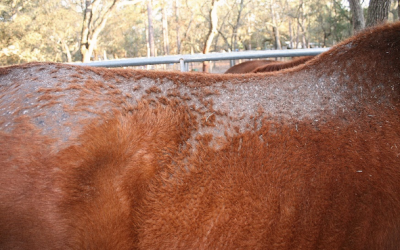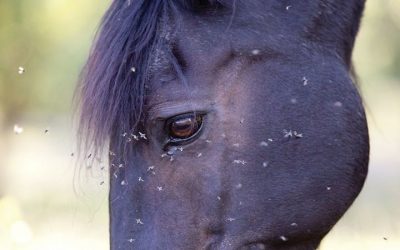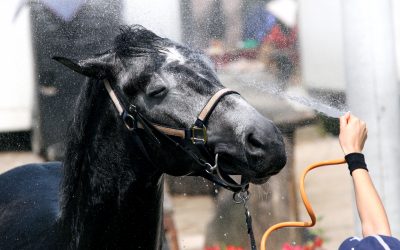Hannah’s Story
February is Ovarian Cancer Awarness Month, which is a cause close to our Clinic Coordinator, Hannah Catton's, heart. At an unthinkable age of 24 Hannah was diagnosed with Ovarian Cancer, and is now sharing her story and raising funds in hopes that it will help others...
Circuit Days 2023
Southwest Equine will continue to offer our popular regular travel day to various areas around the south-west. These are based on current client demand, so are subject to change. We will, of course, let you know if this occurs.PORTLAND & SURROUNDS Every Monday...
Granulosa Cell Tumours
Granulosa cell tumours are the most common reproductive and sepecifically ovarian tumours to affect mares. They are benign, often unilateral but functional in nature but may have adverse effects on both cyclicity and behaviour.Mares with granulosa cell tumours present...
Dermatophilosis AKA ‘Rain Scald’
Due to the ridiculous amount of rain the South-west (and everywhere else) has been experiencing of late, skin conditions such as ‘Dermo’ are common at the moment. Read here a bit about it, as it is a good one to avoid! The condition of dermatophilosis, or “Rain scald”...
Japanese Encephalitis (JE) in Horses
Japanese encephalitis is a mosquito-borne viral disease that can cause reproductive losses in pigs and encephalitis in other susceptible animal species. Horses are a susceptible species. It is caused by Japanese encephalitis virus which is a member of the Flavivirus...
Heat Stress in Horses
Heat stress can occur in all horses, and can occur over a relatively short period of time, particularly in the case of unfit athletes worked strenuously in high ambient temperatures, or can occur from protracted fluid and electrolyte loss during exhaustive exercise...






